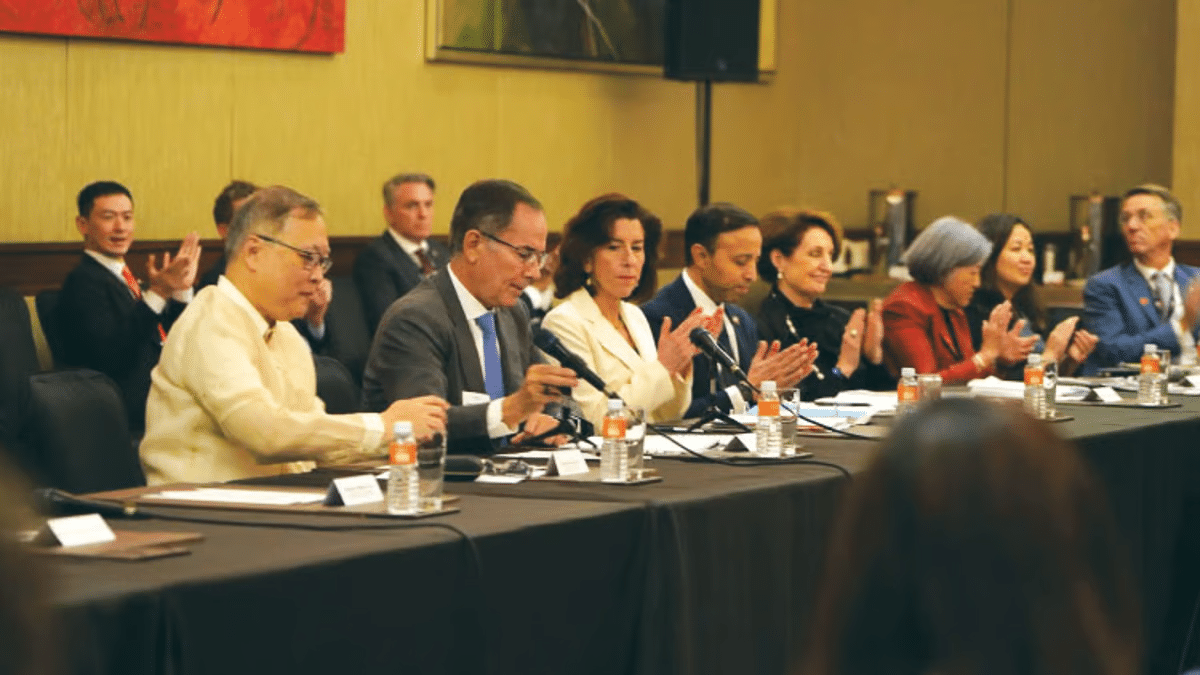The energy investment climate in the Philippines is favorable, according to US Secretary of Commerce Gina Raimondo. She made these remarks during the first US Presidential Trade and Investment Mission in March 2024, where high-level meetings between top US business leaders and Philippine business groups took place.
Raimondo commended the country’s efforts to boost renewable energy investments and explore potential nuclear power projects.
Powering Relationships
A delegation of 22 US industry leaders, including geothermal energy producer Greenfire Energy Inc., solar panel solutions provider Sol-Go, and global nuclear technology leader Ultra Safe Nuclear Corp, was led by Raimondo to build relationships and collaborate with Philippine businesses organized by the Private Sector Advisory Council (PSAC).
The US Commerce Secretary noted that her delegation, representing energy, infrastructure, and information communications and technology sectors, saw promise in directing more investments and projects into the country.
Raimondo said, “Many of the companies that have joined me here have specific projects in mind in these sectors, and I can tell you they are very encouraged by what they’ve heard.” She also lauded the Philippines’ move to allow more foreign investment in energy projects.
She commended the Renewable Energy Act, which allows 100% foreign ownership in the exploration, development, and use of solar, wind, hydro, and ocean energy sources, calling it “huge” and saying it should “unlock a massive amount of US capital in this country in those areas.”
Going Nuclear
Raimondo also emphasized the government’s openness to possible nuclear energy investments, citing the PH-USA 123 agreement signed in November 2023. This agreement provides a legal framework for cooperation between the US and the Philippines in the peaceful use of nuclear energy. She added that this agreement will also “stimulate more investment.”
The PH-USA 123 agreement takes its name from Section 123 of the United States Atomic Energy Act, which establishes the terms and conditions under which a country can provide another with nuclear technology, materials, and equipment for peaceful purposes such as electricity generation.
Alternative Sources
The Philippine government has made recent overtures to nuclear energy experts and organizations, signaling its openness to adopting nuclear energy. Discussions are ongoing through the Asia-Pacific Economic Cooperation (APEC) about the viability of nuclear energy production, including retrofitting existing power plants to be nuclear-capable. Exploratory studies are being done to determine the technology and groundwork required for its possible adoption, including the use of Small Modular Reactors as low-carbon energy sources.
According to Sabin Aboitiz, president and CEO of the Aboitiz Group and lead convenor of the PSAC, “LNG (liquefied natural gas) and nuclear energy are pivotal steps on the path to a sustainable future. They are not just alternatives, but realistic and impactful solutions that can help us transition from traditional fossil fuels to cleaner, more reliable and more affordable energy.”
During the APEC Business Advisory Council (ABAC) Nuclear Energy Transition roundtable in October 2023, ABAC Philippines and ABAC Canada convened to determine the viability of nuclear energy in the Philippines, and the financing mechanisms required for a possible transition.


